An intractable problem with persuading Americans to worry about Donald Trump is that he’s ridiculous. Not ridiculous in the sense of putting on knee-high boots and prancing around in a military costume, as the fascists of yesteryear did. Trump’s brand of ridiculousness is “What if Don Rickles were a Latin American dictator?”
“He’s like a comedian, man. He says funny s—t” is how podcaster Joe Rogan, a comedian himself, recently described Trump. Sometimes the aforementioned s—t is deliberately funny and sometimes it isn’t, but Rogan’s right. At any Trump event, you’re apt to find references to “vermin” and the “enemy from within” diluted with roasts of “pencil neck” Adam Schiff or stand-up riffs about sharks. His rallies are half Night of the Long Knives, half Night of a Thousand Laughs.
And so, to the sort of apolitical undecided voter who’s destined to swing this election, it must be mystifying listening to people like me. The man who’s going to end America as we know it is the same guy doing bits about “the late, great Hannibal Lecter” like it’s open-mic night at the Chuckle House? C’mon.
Trump’s rally at Madison Square Garden on Sunday was the ne plus ultra of his Comandante Rickles brand of politics. Call it Night of a Thousand Chuds: For hours, many of the worst people in right-wing politics took turns at the podium to warm up the crowd. One described Kamala Harris as “the Antichrist,” another mentioned her “pimp handlers.” Tucker Carlson, who hosted a Holocaust revisionist on his podcast last month, warned the audience that it’ll be impossible to believe the results if a “Samoan-Malaysian, low-IQ, former California prosecutor” ends up defeating Trump.
Harris is Jamaican and Indian by ancestry, not Samoan and Malaysian, and has done reasonably well for herself professionally for someone who’s supposedly unintelligent. But if you’re the sort of patriot who’s prone to entertain “independent thinking” about the Holocaust, you’re not going to respect the humanity of an undesirable by taking care to describe the details of her biography correctly.
Demagogues from fields as diverse as politics, business, entertainment, media, and religion came to the stage to salute the comandante. But because this was a Trump rally, the Rickles part had to be represented too. And so podcaster Tony Hinchcliffe, a professional comedian recommended by Rogan, was given a few minutes to crack jokes about black people carving watermelons for Halloween and how Latinos “love making babies. There’s no pulling out. They come inside, just like they do to our country.”
It was standard Friars Club stuff, in fairness. As was this: “There’s literally a floating island of garbage in the middle of the ocean right now. I think it’s called Puerto Rico.”
In the 48 or so hours since Hinchcliffe said that, the political world has lost its mind. And because it has, I feel like I’m losing mine.
A surprising backlash.
“Nothing like October surprising yourself,” a Dispatch colleague said afterward of Team Trump’s decision to feature an insult comic at its rally.
Celebrities of Puerto Rican heritage like Jennifer Lopez, Ricky Martin, and Bad Bunny circulated Hinchcliffe’s crack about the island on social media, exposing hundreds of millions of followers to it. The archbishop there published an open letter to Trump demanding that he apologize personally for what his guest had said. Numerous Republican members of Congress denounced the joke, a rare break from the modern right’s gleeful contempt for sensitivity in all forms. A Trump adviser even issued a statement clarifying that Hinchcliffe’s jab “does not reflect the views of President Trump or the campaign,” which might be the closest their candidate has come to expressing remorse since entering politics. Or since being born.
The reason for the backpedaling is math.
The territory of Puerto Rico doesn’t get a vote in next week’s election, but millions of Americans in the Puerto Rican diaspora who reside in U.S. states do. Hundreds of thousands live in battlegrounds; anecdotally, many seem sincerely offended by Hinchcliffe’s jab. “A nonpartisan Puerto Rican group [in Pennsylvania] drafted a letter urging its members to oppose Trump on election day,” Politico reported on Tuesday. “Other Puerto Rican voters were lighting up WhatsApp chats with reactions to the vulgar display and raising it in morning conversations at their bodegas.”
If the race is as close as the polls suggest, a last-second shift in a sizable demographic scattered across the most influential states is potentially enough to swing it. One Harris-supporting Puerto Rican radio host based in Pennsylvania told Politico, “This is our October surprise.”
Really? This is the thing that’s going to take down Trump?
Don’t get me wrong: It’s fair for voters to hold him responsible for his guest’s crack about Puerto Rico, and not just because the campaign invited Hinchcliffe to speak. “Campaign staffers had asked all speakers to submit drafts of their speeches ahead of time—before they were loaded into the teleprompter,” Marc Caputo reported on Monday. His sources are claiming that Hinchcliffe ad-libbed the Puerto Rico joke but that smells like spin. Apparently, another joke in which he planned to refer to Harris as a “c—t”(!) was cut because a staffer reviewed the material ahead of time and objected to it.
My guess is that the Puerto Rico joke was also part of his prepared material (Hinchcliffe used it at a comedy club the night before, in fact) and the Trump campaign approved it because the only thing anyone on the campaign knows about the island is that it doesn’t have electoral votes. Now that they’re staring at trouble in Pennsylvania, suddenly it’s become an “ad lib” that somehow neither Trump nor J.D. Vance heard even though they were both in the building on Sunday.
I’ll take a Trump defeat any way I can get it. But nothing would be more ridiculous than Comandante Rickles losing this election not because of the comandante side of his politics but because of the Rickles side.
Misplaced priorities.
I understand why Puerto Ricans might be unusually sensitive to political jabs, even when made in jest.
According to a 2017 poll, only 54 percent of Americans know that people born on the island are fellow Americans. It’s one thing to be treated as second-class in your country, it’s another not to be treated as part of your country at all. And insults about Puerto Rico might sting a bit more when coming from the right: A movement that’s grown paranoid about “real Americans” being replaced by brown-skinned invaders will have complicated feelings, shall we say, about maintaining a U.S. territory with a huge Hispanic majority.
If Puerto Ricans want to hit back against all of that by voting against Trump, I raise my glass to them. It couldn’t happen to a nicer demagogue.
But consider the absurdity of this moment.
First, after nine years of Americans eagerly guzzling populist depravity, we’re being asked to believe that a single crass joke at a Trump rally—one not even told by Trump himself—might be the straw that breaks the camel’s back. “His advisers and close allies have marveled privately that nothing has appeared to harm Mr. Trump so far politically,” the New York Times noted on Wednesday about l’affaire Hinchcliffe, “and it has given many a sense of invincibility about what he can get away with.”
I don’t blame them. For all the hype about a Puerto Rican backlash brewing, I can’t conceive at this late hour that a joke might shake voters from their stupor. It would contradict every day of American politics since June 2015. Excitement over the possibility in outlets like Politico stinks of desperation for “one weird trick” that might win Harris the election after every other approach to turn voters against Trump has failed.
Next, we’re being asked to believe that Puerto Ricans care more about a joke told at a campaign event than they do about Trump’s treatment of Puerto Rico as president. After Hurricane Maria devastated the island in 2017, his administration withheld $20 billion in relief aid to residents; when he visited the island, he behaved with exactly as much sensitivity as you’d expect; later, reportedly, he proposed to aides that the U.S. “trade” the island for Greenland, the sort of “brown foreigners for white foreigners” swap destined to please aficionados of the Great Replacement Theory I described earlier.
What sort of Puerto Rican patriot was undecided about Trump after all of that but felt moved to break hard for Harris once Hinchcliffe opened his yapper?
More importantly, what sort of American patriot was undecided about Trump after a coup plot, dozens of felony convictions, multiple criminal indictments, a sexual abuse civil verdict, oodles of comandante rhetoric about domestic enemies, and de facto promises of another coup plot to come—but now, thanks to Tony Hinchcliffe, has at last decided that he can bear no more?
If you’re looking to a Harris victory for signs of life in America’s civic conscience, I regret to inform you that a skin-of-her-teeth win in Pennsylvania courtesy of voters who couldn’t take a joke shouldn’t reassure you. “Fascists can win national elections in the United States so long as they don’t campaign with stand-up comics” isn’t the stirring endorsement of democracy that we’re hoping for.
The double standard.
Finally, there’s this absurdity: Does anyone think Hinchcliffe’s joke would have drawn the same reaction had Trump delivered it?
In a sane world, a politician comparing Puerto Ricans to “garbage” would be treated more seriously than a comedian doing so. In our world, the opposite is true. The Republican politicians and assorted MAGA sycophants who have been complaining about Hinchcliffe since Sunday would scramble to explain why voters shouldn’t hold the same joke against Trump—or even that they should appreciate the truth behind it. One of my editors imagined the spin: “Actual Puerto Ricans know the governance of the island is garbage and they appreciate President Trump for calling it out.”
With herculean effort, right-wing hacks would battle to turn public reaction to their hero’s remark into a standard 50-50 partisan issue. Puerto Ricans who are angry at Hinchcliffe today would be assured that Trump hadn’t said what they thought they had heard him say and that to believe otherwise is to be a willing dupe of Democrat-communist propaganda.
This isn’t strictly hypothetical. A few days before Hinchcliffe, Trump also used the word “garbage” to describe a class of people: “We’re like a garbage can for the world,” he said of the United States, referring to immigrants. Those immigrants aren’t citizens, as Puerto Ricans are, but many have American citizens in their family. And they’re human beings, after all, no matter what Tucker Carlson might tell you. How much of a backlash has there been to Trump calling them “garbage”?
Hinchcliffe was joking and Trump plainly wasn’t, but Comandante Rickles is the only one of the two who gets the benefit of the doubt. That’s not because he’s a better comedian—it’s because he’s the comandante.
I wonder, in fact, if some of the right-wingers who are complaining publicly about Hinchcliffe and privately to Marc Caputo aren’t using this occasion to vent some of their deeply suppressed disgust at Trump by directing it at a whipping boy instead. Anyone who’s more offended by a comedian’s jokes than by a fascist sewer rat’s earnest burblings about the “enemy from within” should see a psychiatrist.
Exhaustion.
I doubt that a backlash among Puerto Ricans will cost Trump the election. More interesting is Sean Trende’s hunch: If anything useful comes from this episode, it’ll be that it showed voters at the last moment what awaits them in a second Don Rickles presidency every day for the next four years.
“It … is a reminder to a lot of people of the constant exhausting drama/amateur hour performances/stupid s–t that characterized Trump’s first term, that reminds them why they didn’t really like the guy, at one of the worst possible times,” Trende wrote. Or, to put it another way:
Kamala Harris will make the same point in her speech tonight at the site of Trump’s January 6 rally, urging Americans to “turn the page” on this era. Perhaps exasperation with his antics can move undecided voters in a way that civic outrage hasn’t. Reelect him and every night until 2029 will be the Night of a Thousand Chuds.
If Democrats want to borrow that as their slogan for the final week of the campaign, they have my permission.
But the idea that voters might at long last grow weary of Trump also seems absurd under the circumstances, no? It’s more wish than theory. He’s run the most demagogic presidential campaign of our lifetimes, and he’s polling better than he ever has as a candidate. By far, his chances of winning this election are higher than they were in the previous two. The evidence that Americans have grown exhausted by his shtick is scant.
The opposite, in fact: To all appearances, they’ve developed an appetite for it. Listening to some complain this week that there’s a time and place for insult comics and that place isn’t at a presidential rally, I wonder if they’ve been hallucinating for the last nine years or if I have. Hosting a rally like the Night of a Thousand Chuds where all sense of decorum is out the window isn’t a sign of “weakness” any more than Trump not inviting Nikki Haley to campaign with him down the stretch is. It’s a sign of strength. He feels no need to feign decorum or a Reaganite sensibility because he’s persuaded a critical mass of Americans not to care about those things anymore. He created a new set of rules for politics and now he’s playing by them.
And he’ll probably win.
If there’s any virtue in the Hinchcliffe kerfuffle, it’s this: The American right is being conditioned to believe that there’s no rational explanation if Trump loses to Harris, but the backlash to this episode has intruded on that. If the Democrat wins a squeaker in Pennsylvania now, Republicans will have to contend with a reasonable theory that she did so legitimately—namely, that a bad joke in the home stretch tilted just enough Puerto Ricans to Harris to cost Trump the election. Tony Hinchcliffe’s big gig at the Garden might end up making him the mortal enemy of 50 million MAGA fanatics. Now that’s funny.
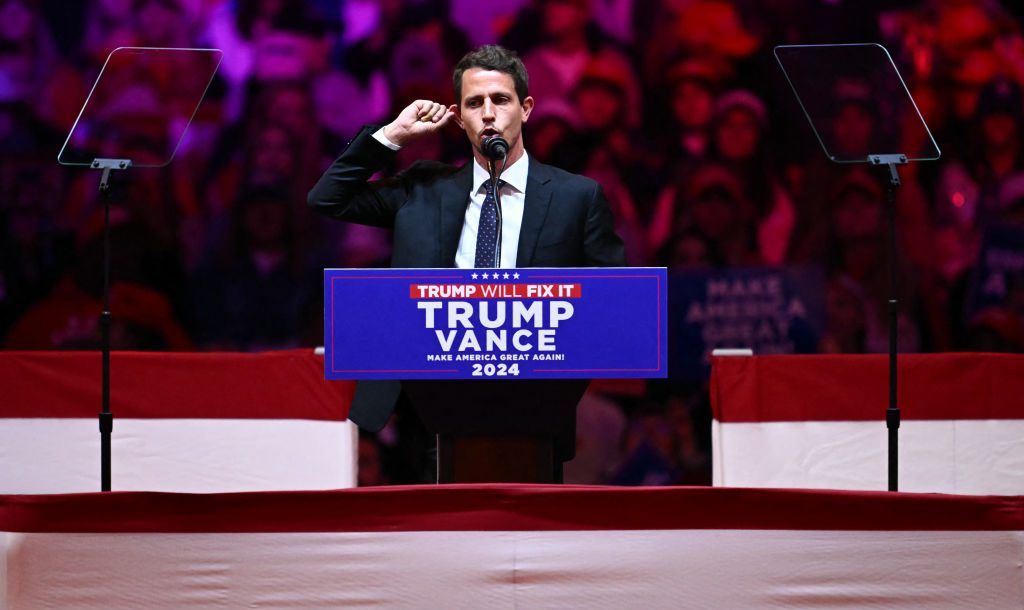


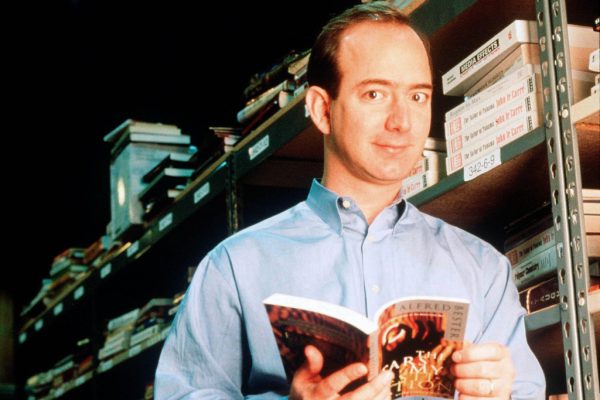
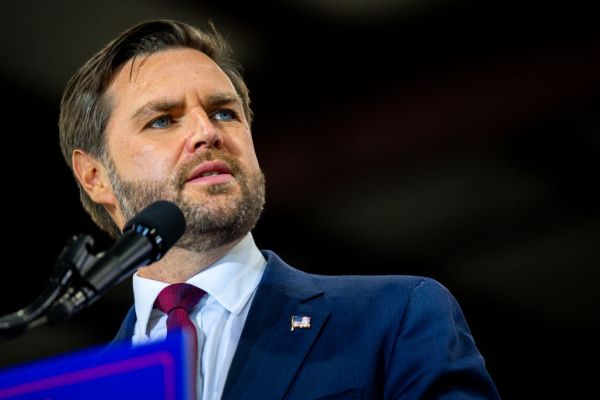
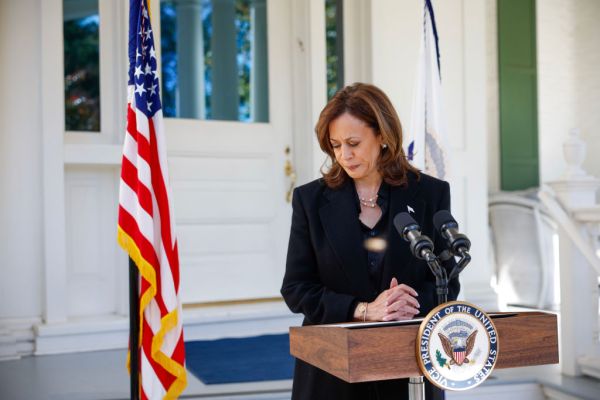


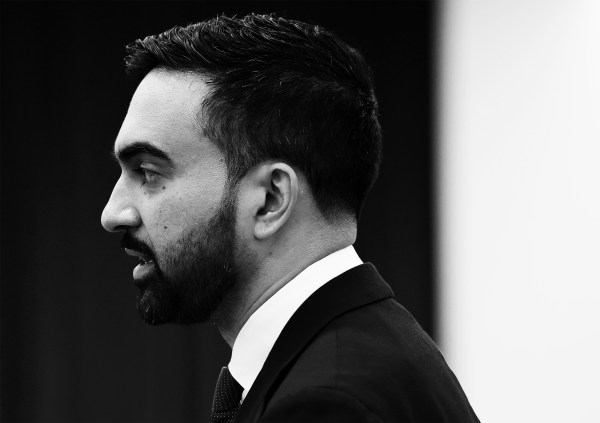
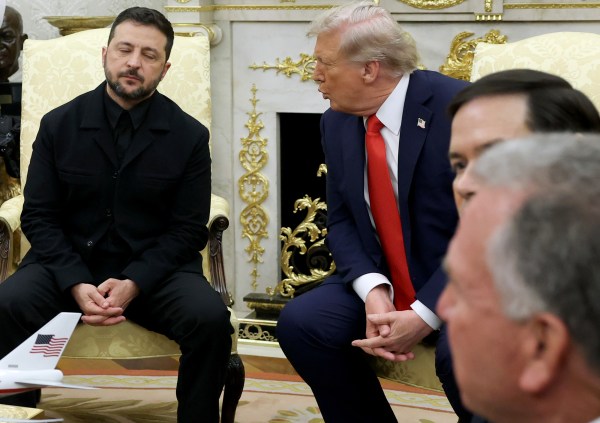

Please note that we at The Dispatch hold ourselves, our work, and our commenters to a higher standard than other places on the internet. We welcome comments that foster genuine debate or discussion—including comments critical of us or our work—but responses that include ad hominem attacks on fellow Dispatch members or are intended to stoke fear and anger may be moderated.
With your membership, you only have the ability to comment on The Morning Dispatch articles. Consider upgrading to join the conversation everywhere.